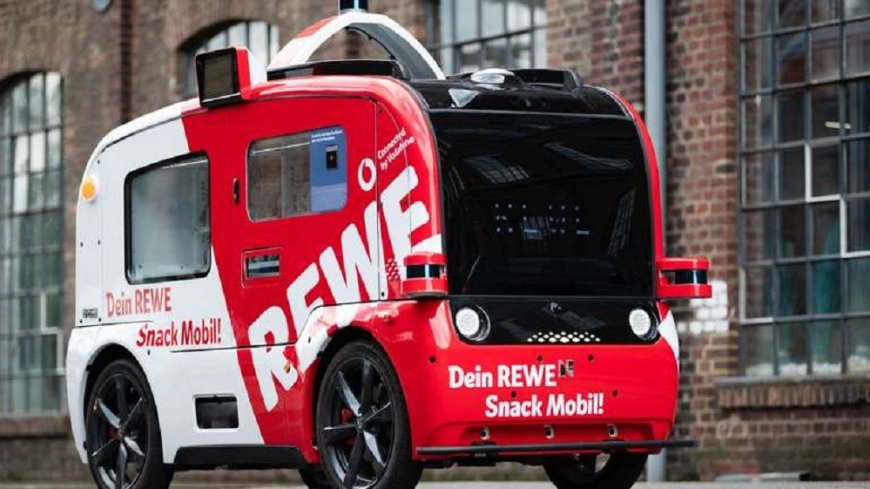The first autonomous supermarket in Europe is a vending machine with wheels that is already circulating in Germany
autonomous mobile food kiosk. Snack Mobil and it's a pilot project developed by Vodafone and REWE, a very popular retail supermarket

While some companies are increasingly betting on smart, unstaffed shops, Germany has launched Europe's first autonomous mobile food kiosk. It's called Snack Mobil and it's a pilot project developed by Vodafone and REWE, a very popular retail supermarket chain in Germany.
The small four-wheel vehicle offers a basic selection of 32 healthy drinks, sweets, snacks and appetizers at strategic points to bring the product closer to the consumer, who only has to locate it through the REWE app, select their purchase using the touch screen, and pay with your mobile phone. Although in a first phase it moves accompanied by a supervisor, the mobile kiosk is designed to work completely autonomously.
The Carlswerk shopping park in Cologne has been chosen as the first test site, where this Snack Mobil moves following a pre-programmed route at a specific time, at a maximum speed of 6 km per hour. The itineraries will be expanded in the coming weeks, and you will also have the option of placing specific orders through the same app.
Must Read: 10 tips for those who enter the university
The vehicle works through a combination of state-of-the-art sensors, cameras and the mobile network of the British multinational. It is precisely the latest generation radio communication technology that allows the real-time data exchange necessary for the autonomous store to move on its own without danger to pedestrians or traffic.
Thanks to a SIM card, an external antenna and 5G technology, the kiosk stays in direct contact with the virtual route planner. The sensors locate any possible obstacle, stopping automatically, and only resuming its course when the preset safety distance is met again. In this way, to make a purchase, the user only has to approach and give him a signal with his hand, or wait at the fixed stops along the route.
This pilot project is running until September, when the results obtained will be evaluated before taking the next step. The objective is not only to provide greater comfort to consumers or to save on staff, but also to improve mobility and reduce traffic in urban areas that concentrate a large activity, such as business parks, industrial parks or study campuses.
